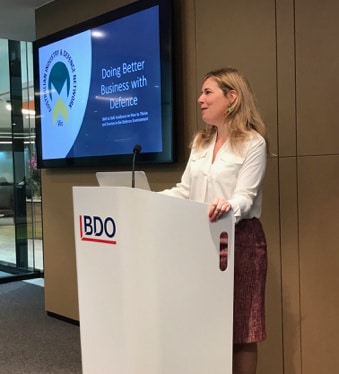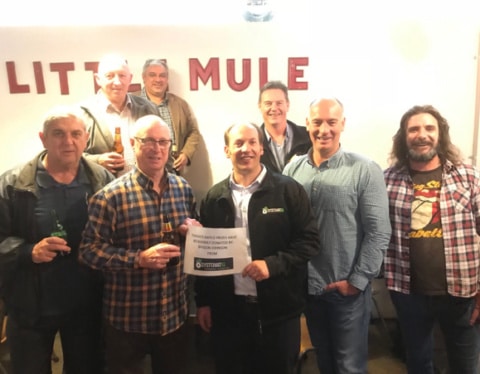The recently released Defence Strategic Update and Force Structure Plan 2020 offers an integrated view into the government’s approach towards policy and budgeting, while also attempting to address the current economic, strategic and political anxiety that continues to concern the Australian public.
Focusing on key aspects such as the inclusion of more SMEs within the Defence supply chain through the creation of strategic partnerships within the industry, the updated document has set a strong precedent for Australia’s capability towards developing itself as an independent power.
“Agility and capacity for innovation – hallmark qualities of Australian small businesses – are the attributes empowering business to successfully withstand the unprecedented impacts of COVID-19” said Melissa Price, Minister for Defence Industry.
Greater emphasis is now being placed on localising the ADF’s consumption and empowering “inclusivity of scale and size” within its landscape.
“Small businesses always have – and always will – play a vital role in building Defence capability here in Australia. There are great opportunities on the road ahead. And I’m looking forward to helping them to get there.” Said Minister Price.
The importance of innovation and partnerships within the Defence industry
The Defence Strategic Update symbolises Australia’s sovereignty and self-reliance in navigating through these unstable and turbulent times. The emphasis of creating long-term, Australian partnerships is one of the key focuses of the Defence Strategic Update.
A few ways in which the Defence narrative has focussed on becoming more local:
- The Australian Industry Capability (AIC) has been around for several years, but only recently the AIC program has become more aligned with our sovereign industrial capability. The focus has shifted towards ensuring that defence SMEs are contributing to maintain and support the defence force.
- The launch of the Integrated Investment Program (IIP) in 2016, was a way to offer the industry visibility of the opportunities that exist within Defence, while identifying the gaps that need to be filled. The intent of doing so was to maximise the local industry’s involvement.
- The Commonwealth of Australia (CoA) now places a huge importance on inclusivity of ‘scale and size’ when deciding on a winning tender. Primes need to work with SMEs to make their submissions more strategic and innovative.
Previously, SMEs were at a disadvantage owing to the existing barriers such as the cost involved in preparing a submission and lack of complete information. But with Defence offering SME grants and strategic documents now focusing on making Defence more inclusive, more and more SMEs are finding it easier to become an integral part of the Defence supply chain.
Australian SMEs play a crucial role in the Defence industry, now more than ever
A recent webinar by KPMG hosted a panel of distinguished members to discuss their views on the recently released Force Structure Plan.
The discussion focussed on the impact the Defence Strategic Update had on each sector of the Defence supply chain, as represented by the participants:
Rebecca Humble, Chief of Strategy & Capability at The Nova Group of Companies
Chris Keane, Chief Future Business at BAE Systems Australia,
Marcus Hellyer, Senior Analyst at Australian Strategic Policy Institute
Mike Kalms, Defence Industry Lead Partner at KPMG Australia
The panel concluded that:
- It is now more important than ever for businesses in Defence to establish themselves as part of ‘Sovereign Australia’. Rebecca from Nova pointed out “Sovereignty is about enduring Australian Industrial capability. We need to be less reliant on global supply chains”.
- Within the industry, there should be a constant need to be more agile and responsive. Marcus Hellyer commented, “Innovation, both on a micro and macro level will need to think about issues differently. We will need to respond quicker and hopefully get Defence to think with more agility.”
- Strong collaborations between large organisations, SMES and academia are seeing real benefits within the Defence industry. “There is more emphasis on Primes to develop local supply chains to deliver programs. Land 400/JORN programs specifically are now concentrating on building long term partnerships, trusted relationships, building local workforce to meet delivery challenges.” Chris Keane pointed out.
- The need to develop an enduring Australian capability that can support Defence as a long-term partner has become the need of the hour. Chris Keane of BAE Systems Australia pointed out “Given the threat environment we are working in, we need to strengthen our strategic relationships, develop our self-reliance and refresh our defence industry export opportunities.”
Bridging the gap
As a boutique procurement, project and asset management consulting firm that operates in the Defence space, we use our expertise to bridge the gap between large and small organisations within the industry to fulfil a tender response and capability.
If you are an SME looking to broaden your scope of work within the Defence industry, contact us to find out how we can join the dots and make you a part of a larger Defence project.





